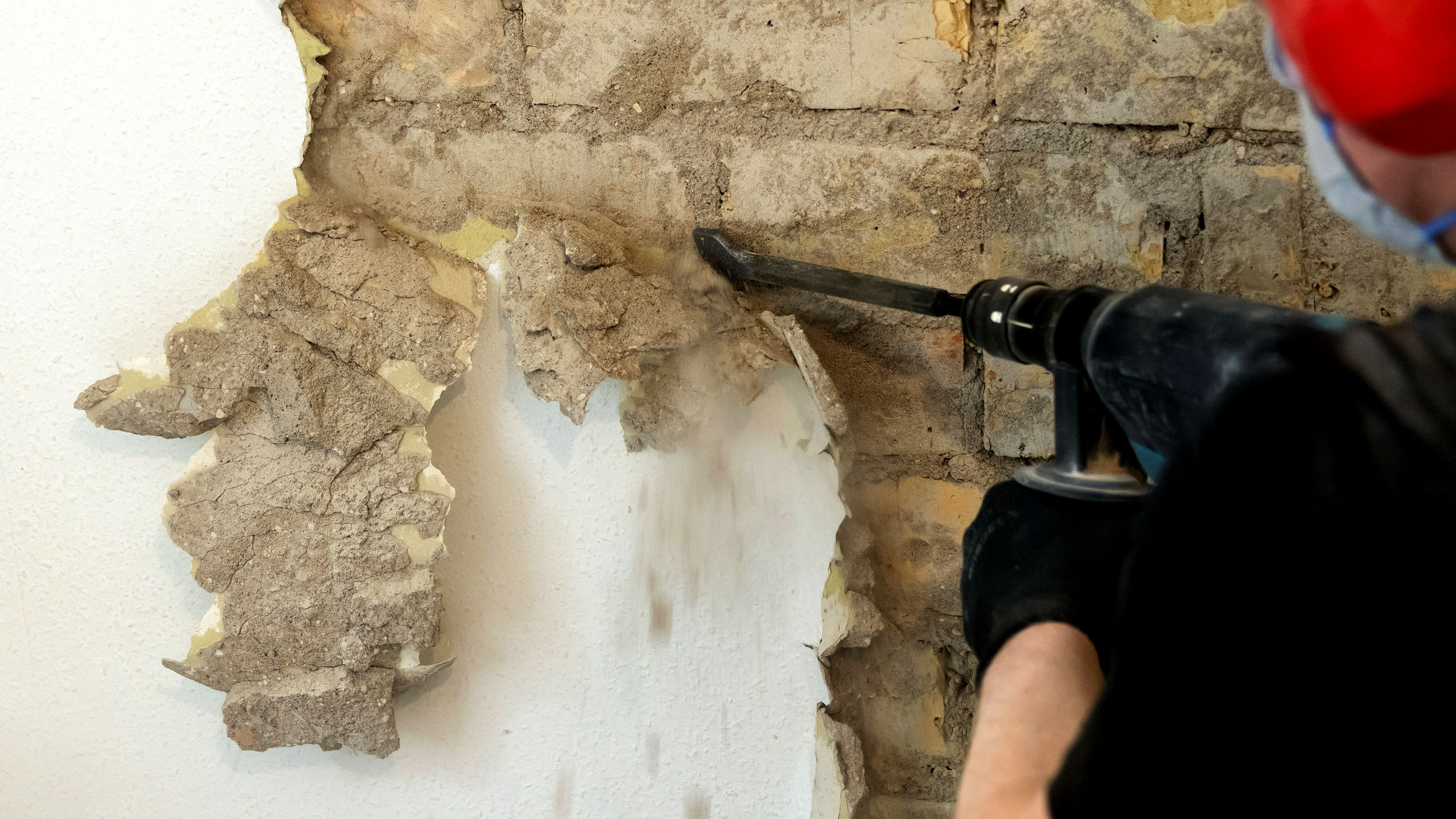What is an SDS drill? Find out what they are and why you might need one
What is an SDS drill? Do you want to know they are used for and how much they cost? We have the answers to these commonly asked questions and much more

You know what a drill is, but what is an SDS drill? In simple terms it is a heavy duty hammer drill that is used for jobs that a standard hammer drill will struggle to deal with. So what does SDS stand for? It is an initialism for slotted drive system but is also known as slotted drive shaft.
SDS drills combine the standard rotary action and hammer action of a standard drill but use different drills and typically have more power. They have a chuck that is specially designed to fit SDS drill bits, and can be purchased – like a standard drill – in both corded and cordless versions.
Here we give you an insight into what tasks an SDS drill can perform to help you decide if you need one for your latest DIY project.
What is an SDS drill?
So what is the differences between an SDS and standard hammer drill? An SDS drill is a hammer drill, just a different type of hammer drill — an SDS drill is like a hammer drill on steroids. It has a more powerful motor than a standard hammer drill, a specialist chuck, a more efficient hammer action and uses specialist drill bits which can tackle far tougher jobs than your standard drill.
What is an SDS drill good for?
While a regular drill is good for metal, wood and small masonry jobs – like drilling a hole for a wall plug and a screw to put up a shelf – they are not any good for tougher materials. The motor, components, chuck and drill bits in a SDS drill combine to make them ideal for working with steel, brick, masonry, and concrete.
They are good for breaking up concrete, removing old tiles from walls, removing an old brick fireplace and useful when you are knocking down internal walls. And due to their power you can use them for more standard jobs but get them done much quicker.
How much do SDS drills cost compared with standard hammer drills?
The prices for both can vary greatly depending on brand, build quality, motor size and features. Prices can start as low as £50 for an SDS drill.
But for a better quality option you will need to spend more with prices ranging from £100-£300. SDS drills from mid-range brands will generally cost in the region of £200+.
If the drill is for occasional use, however, a £100 model should serve you well.
Do SDS drill bits fit all drills?
No, the chuck on a standard rotary hammer drill is different to that on an SDS drill so SDS drill bits are not suitable for other drills. If you try using standard drill bits in an SDS drill they can damage the drill and chuck.
Can you use an SDS drill for normal drilling?
You can use them on wood, metal and concrete like you would a standard drill. But if you are only going to be using your drill for standard everyday or DIY jobs, there isn’t any real purpose in investing in a SDS drill.
However, if you are planning to do some heavy duty building work such as removing a chimney breast then you want to look at investing in a SDS drill.
Get the Homebuilding & Renovating Newsletter
Bring your dream home to life with expert advice, how to guides and design inspiration. Sign up for our newsletter and get two free tickets to a Homebuilding & Renovating Show near you.
Steve Jenkins is a freelance content creator with over two decades of experience working in digital and print and was previously the DIY content editor for Homebuilding & Renovating.
He is a keen DIYer with over 20 years of experience in transforming and renovating the many homes he has lived in. He specialises in painting and decorating, but has a wide range of skills gleaned from working in the building trade for around 10 years and spending time at night school learning how to plaster and plumb.
He has fitted kitchens, tiled bathrooms and kitchens, laid many floors, built partition walls, plastered walls, plumbed in bathrooms, worked on loft conversions and much more. And when he's not sure how to tackle a DIY project he has a wide network of friends – including plumbers, gas engineers, tilers, carpenters, painters and decorators, electricians and builders – in the trade to call upon.

